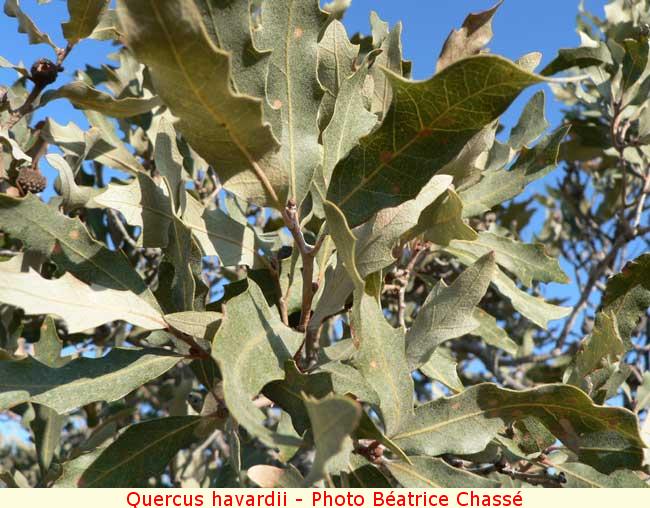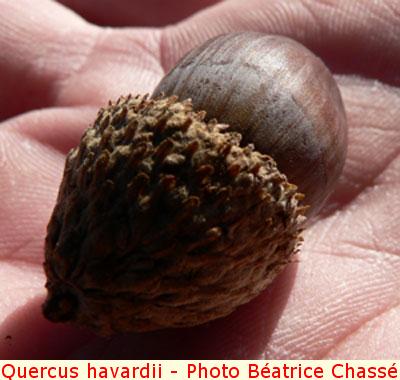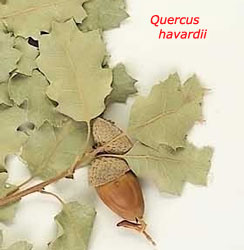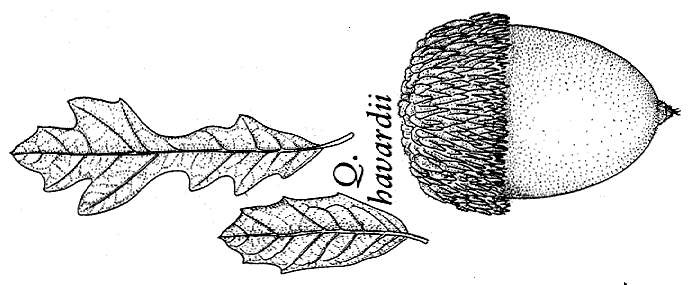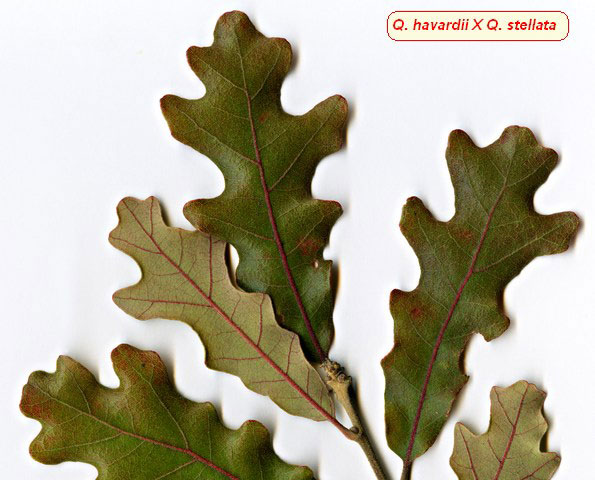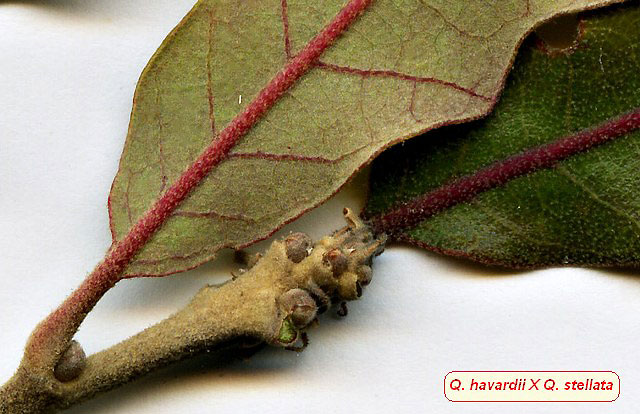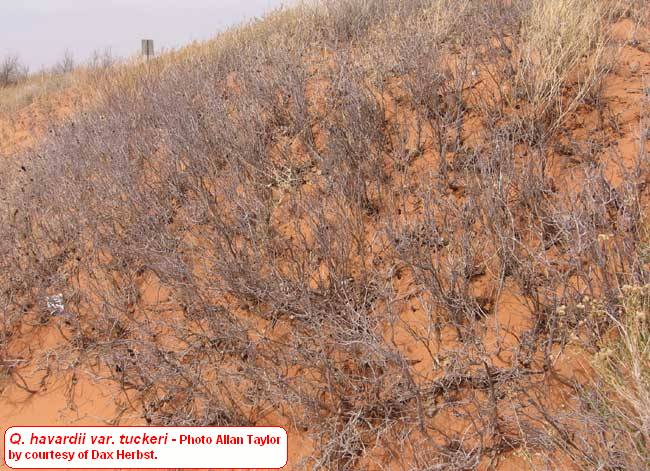| Quercus havardii | |
| Author | Rydb. 1901 Bull. New York Bot. Gard. 2: 213 |
| Synonyms | |
| Local names | Havard’s
oak ; sand shinnery oak ; Havard ‘s shinnery oak ; shin
oak ; |
| Range | Southeastern
New-Mexico; northwestern Texas; W. Oklahoma; 500-2000 m; |
| Growth habit | 0,5-2
m; often forming a spreading bush (to 15 m wide), multiple trunks (to
60 or more) by layering in the sandy soil; |
| Leaves | 2.5-7.5
x 1.2-5.5 cm ; elliptic to lanceolate; leathery; apex pointed sometimes
truncate; base rounded to cuneate; margin entire or coarsely dentate,
often wavy; adaxially slightly hairy, dull green; abaxially densely hairy,
with 8-13 rayed stellate hairs; 5-8 vein pairs; petiole pubescent to 7
mm; |
| Flowers | in April; 8 stamens; |
| Fruits | large acorn 1.5-2.5 cm long; singly or paired; subsessile, or shortly stalked; enclosed 1/3-1/2 by cup; cup deep, densely tomentose inside, with warty scales basally thick; maturing in 1 year; edible; |
|
Bark, twigs and |
bark
pale grey, slightly furrowed; young shoots tomentose, becoming glabrous
in 2 years, sometimes red brown; bud dark brown, subglobose, slightly
pubescent, 2 mm long; |
| Hardiness zone, habitat | hardy
in zone 7; occurs in sand dunes; |
| Miscellaneous | --
A. Camus n° 259; -- Sub-genus Quercus, Section Quercus, Series Stellatae; -- Threatened (IUCN Red List Category : EN) -- Hybridizes with Q.pungens which it resembles a lot, and with Q.stellata; |
| Subspecies and varieties |
---
var. tuckeri S.L Welsh 1986 it is probably a hybrid with Q.gambelii and Q.turbinella |
| Pictures |
|
